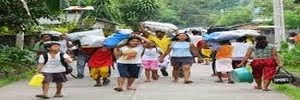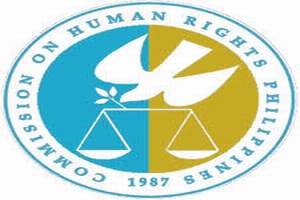links: http://www.gov.ph/2013/06/19/speech-of-president-aquino-at-the-opening-ceremony-of-gdns-14th-annual-global-development-conference-june-19-2013/
Speech
of
His Excellency Benigno S. Aquino III
President of the Philippines
At the opening ceremony of the Global Development Network’s 14th Annual Global Development Conference
[Delivered at Asian Development Bank Headquarters, Manila, on June 19, 2013]
We hold this Global
Development Conference in our country at an appropriate time. This is
the 152nd birth anniversary of our national hero, Jose Rizal, who was
largely responsible for steering our nation down the path of equality
and, subsequently, development. Few people know that during his exile in
Dapitan in Southern Philippines, Rizal took a hands-on approach to
development. He established a school and started a medical practice,
effectively taking the role of community-builder in a far-flung area of
the Philippines.
More than a century after
Rizal’s death, people all around the world continue to share that human
desire to empower, as evidenced by your presence here. May I note in
particular how Alvin Ang and Jeremiah Opiniano won the annual
competition for Outstanding Research for Development in 2011. This is, I
understand, the first and only time the Philippines has won this
competition. For that, I thank you. As your annual competition within
this conference shows, the problems that confront us, however, have
changed since Rizal’s era. Countries the world over have found
themselves beset by social unrest—unrest that roots from a prevalent
public perception that the people’s voice is not being heard. This
global flux has brought about significant social and economic
consequences for the entire world—and it pushes us to evolve the way we
think—from the way we approach development to the way we go about
solving our problems. And this is precisely why we find ourselves here
today.
We have long heard that the
first step in solving a problem is acknowledging that there is a
problem. But perhaps we can even build on this idea: The first step to
solving any problem should be identifying the correct problem, otherwise
any solution would be directionless, and therefore ineffective. This
conference helps us do just that. It puts more solidity to the analysis
of the problem, which will hopefully redound to more specific, more
effective, and more strategic solutions.
For most of the developing
world, the overarching problems can be summed up in a few words:
poverty, hunger, unemployment, lack of education, corruption. These are
not unique to any one country or people—each of us have seen or
experienced them and their effects.
All these problems combined to
deprive people of hope, initiative, and opportunities and while no one
can guarantee outcomes, I believe, it is incumbent upon government to
provide meaningful opportunities to individuals and an environment
conducive to empowering our fellow citizens to seek out and maximize
opportunities that come their way. We cannot have a society where a few
flourish and the rest just make do with crumbs. We must have inclusive
growth.
This is nothing less than a
fair deal, a running start, for all with interventions by the government
where it matters and can do the most good. In the first three years of
our term, we focused resources on our Conditional Cash Transfer Program.
Stay in school, see the doctor, be our partners in health and learning,
and we will lend you a helping hand. We close the gap in classrooms and
raised our budgets for education, from the primary all the way to the
tertiary level.
The next three years will see
continued interventions in the poorest of the poor but also a focus on
the vulnerable but emerging sectors of society all made possible by
prudent public finance policies and honesty in public administration by
continuing efforts to build mass housing on site and not in far flung
areas by creating durable jobs in industry, tourism and agriculture.
This is what our government
has chosen to do. The difficulty is that while the problems may be
universal, the solutions are not. Each region, each country, each city,
and town has its own reality—and the solutions we come up with must be
tailor fit to local conditions. This means that our solutions might not
be the best for your own communities, and we must study their effects
and how to maximize positive interventions in a specific and thorough
manner.
For example, our country has
more than adequate coconuts to harvest—and hundreds of thousands of
coconut farmers who could potentially benefit from growth in the sector.
We likewise heard of a growing market for coco-water worldwide. So what
we did was: We made the effort to connect our farmers to consumers from
all around the world. The result: From 2009 to 2011, the value of our
coco-water exports increased from 370,000 dollars to 15.1 million
dollars—an increase of almost four thousand percent. From correctly
reading local conditions, we were able to turn coco-water, which used to
be a mere waste product, into an engine of empowerment. Another former
waste product we have taken advantage of is coconut coir, which is
extracted from coconut husk. We found that we could effectively use the
material to strengthen our roads and prevent erosion, which is why our
Department of Public Works and Highways has been using it in its
projects–and this, may I add, has been such a success that we find
ourselves with the shortage of this product due to massive exporting of
the same. So, through approaching the problem in the context of its
immediate environment, and with a dash of local ingenuity, we turned
literal waste products into vibrant industries.
In this case, the broad
solutions may strike us as common sense solutions: Identify our
competitive advantages, build on them, and try to move up the value
chain. But the true question of development hinges largely on a thorough
knowledge of the local condition. It hinges on finding each region’s
coco-water—an untapped opportunity for growth, empowerment, and
synchronicity.
The studies we are sharing
today root from a profound idea: that while it feels, at times, that the
specific research we conduct is dwarfed by the enormity of the world’s
troubles, all our work combined can form a constellation of knowledge
that arms human civilization with the tools to combat inequality and to
pursue growth that is truly inclusive.
Our continuing education—our
acknowledgment that we do not know everything yet—makes certain that we
will not become obsolete nor irrelevant. And perhaps that is the most
resounding message of this conference: that we remain in pursuit of more
knowledge—that we are saying yes to that natural human desire to get
better. I am hopeful that in the span of this conference, we can hold a
truly free exchange of ideas as regards development, so that we may
advance the way we approach our world’s most pressing problems. I
encourage you all to speak with one another and, above that, to listen,
all for the sake of bequeathing coming generations a world better than
we found it.
I thank you for listening and I bid you all a good day.
GPH Website
http://www.gov.ph/
links:
links:
http://www.gov.ph/2013/06/19/speech-of-president-aquino-at-the-opening-ceremony-of-gdns-14th-annual-global-development-conference-june-19-2013/
OTHER HUMAN RIGHTS PROMOTIONS WEBSITES
Human Rights Advocacy Promotions | Human RightsHome - Human rights Promotions Website
PROTECTION AND PROMOTION OF HUMAN RIGHTS
-----------------------------------------------------------------------------------------------
------------------------------------------------------------
-----------------------------


























































0 comments:
Post a Comment